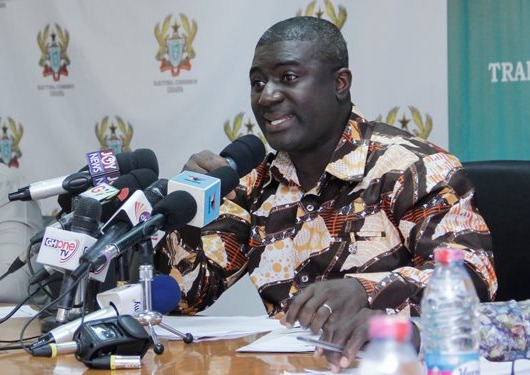adverts
The Electoral Commission (EC) of Ghana has announced a major step towards ensuring accuracy and transparency in the upcoming elections by recruiting over 200 professionals specialising in mathematics, statistics, and other quantitative fields.
This initiative is part of the EC’s broader commitment to conducting an error-free electoral process, reinforcing public trust, and upholding the country’s democratic values.
In a media interview on Tuesday, November 5, Dr. Eric Bossman Asare, the Deputy Chairperson of the EC, outlined the Commission’s comprehensive preparations.
adverts
Dr. Asare stressed the importance of maintaining transparency and accuracy to build and sustain public confidence, particularly given the significant role that free and fair elections play in a functioning democracy.
He explained that the newly recruited specialists, who have expertise in fields like mathematics, actuarial science, and statistics, will play a crucial role in data collation, vote tabulation, and statistical analysis. By leveraging their analytical skills, the EC aims to minimise both minor and significant errors that could otherwise impact the credibility of the election outcomes.
The focus, Dr. Asare said, is on creating a system where the results accurately reflect the will of the people.
“The Commission has already recruited over 280,000 individuals who are going to work on this election,” Dr. Asare revealed. “These are people who have a background in mathematics, actuarial science, and statistics, and they will assist with quantitative methods at the constituency level, working closely with the returning officers.”
This recruitment effort marks a significant enhancement in the EC’s operational capabilities. With the inclusion of these data experts, the EC seeks to bolster the reliability of its processes, from vote counting to the final reporting of election results.
Dr. Asare underscored that the goal is to avoid any errors, big or small, that could affect public perception of the election’s integrity.
This recruitment drive aligns with the EC’s broader strategy to maintain high standards of electoral operations. By bringing in individuals with specialised skills in quantitative analysis, the EC is prioritising a data-driven approach to election management. This, Dr. Asare noted, is essential not only for a credible election process but also for securing the confidence of Ghanaians in their democratic institutions.
As the country approaches the election, the EC’s efforts to enhance transparency and precision are being closely watched by stakeholders, including political parties, civil society organisations, and the general public. Many have expressed support for these reforms, viewing them as a positive step toward a fair and accurate election that reflects the collective will of the people.
With this renewed focus on professionalism and data accuracy, the Electoral Commission hopes to set a new standard in electoral management, reinforcing the importance of integrity and accountability in Ghana’s democratic process


